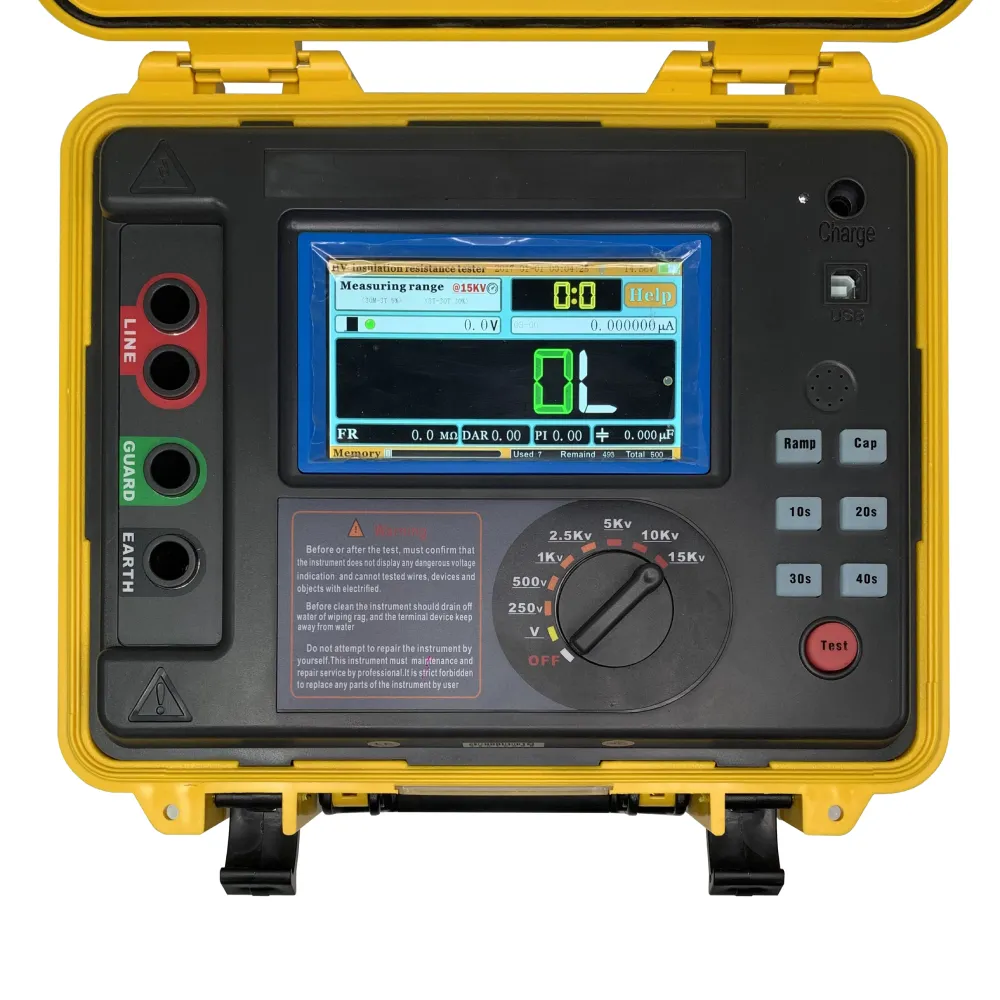 English
English


Exploring the Functionality and Applications of Oil Dielectric Testers in Electrical Testing
Understanding Oil Dielectric Testers Essential Tools for Electrical Insulation Testing
In the field of electrical engineering, ensuring the reliability and safety of electrical systems is paramount. One critical aspect of this is the ability to measure the quality of insulating materials, which prevent unintentional electrical conduction. One of the most effective tools for this purpose is the oil dielectric tester.
What is an Oil Dielectric Tester?
An oil dielectric tester is a specialized device used to determine the dielectric strength of insulating oils and solid insulating materials. Dielectric strength is a measure of an insulating material’s ability to withstand electric stress without breaking down. This is crucial in the operation of transformers, circuit breakers, and other electrical equipment that rely on insulating oil to maintain operational safety and efficiency.
How Does It Work?
The primary function of an oil dielectric tester is to generate high voltage across a sample of insulating oil or solid insulation. The tester measures the voltage at which breakdown occurs—meaning the point at which the insulating material fails and allows electricity to flow through. This breakdown voltage is indicative of the quality of the insulation and its ability to safeguard against electrical faults.
Typically, the tester consists of two electrodes submerged in the insulating oil. The system gradually increases the voltage until it reaches the breakdown point, at which the dielectric strength is recorded. The process is usually conducted following standard protocols to ensure accuracy and repeatability.
Importance of Dielectric Testing
Conducting regular dielectric testing of insulating oils in transformers and similar equipment can prevent catastrophic failures and unplanned downtimes. Contaminants such as water, particulate matter, and gases can significantly reduce the dielectric strength of the oil, making the system more vulnerable to electrical failures. By identifying deterioration in insulation properties through regular testing, maintenance teams can take proactive measures such as filtration or replacement of the insulating oil.
oil dielectric tester

Applications of Oil Dielectric Testers
Oil dielectric testers are widely used in various sectors, including
1. Power Generation and Distribution Power plants and substations deploy these testers to ensure their transformers and high voltage equipment operate safely and efficiently. 2. Manufacturing Factories that produce electrical devices often perform dielectric testing on raw materials and completed products to guarantee insulation integrity.
3. Research and Development In laboratories, dielectric testers are essential tools for developing new materials and enhancing existing insulation technologies.
4. Field Testing Mobile oil dielectric testers enable on-site testing, providing immediate results that support quick decision-making for maintenance and repair.
Conclusion
In summary, oil dielectric testers play a critical role in maintaining the safety and reliability of electrical systems. By measuring the dielectric strength of insulating oils, these devices help manufacturers, utilities, and maintenance teams detect potential issues before they escalate into significant failures. Regular testing not only extends the life of equipment but also protects personnel and prevents costly downtimes. As technology advances, it is expected that these testers will become even more sophisticated, integrating automation and data analysis to enhance their effectiveness and user-friendliness.
Overall, the importance of oil dielectric testers cannot be underestimated in the journey towards achieving high safety standards in electrical engineering.
-
Differences between open cup flash point tester and closed cup flash point testerNewsOct.31,2024
-
The Reliable Load Tap ChangerNewsOct.23,2024
-
The Essential Guide to Hipot TestersNewsOct.23,2024
-
The Digital Insulation TesterNewsOct.23,2024
-
The Best Earth Loop Impedance Tester for SaleNewsOct.23,2024
-
Tan Delta Tester--The Essential Tool for Electrical Insulation TestingNewsOct.23,2024





